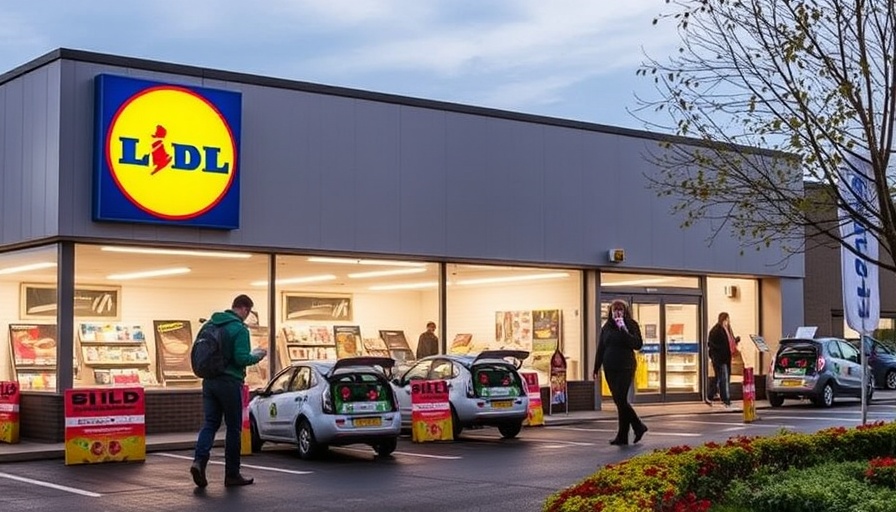
The Reasons Behind the Blockades
Recently, all five Lidl depots in Belgium faced blockades initiated by the ACV labor union. The action comes amid rising concerns from employees regarding the overwhelming work pressure they are currently enduring. With reports indicating increasing workloads across supermarkets, the union argues that this situation is no longer sustainable for staff members. The emphasis is on the need for management to reassess work protocols and employee welfare, particularly in the context of a sector that is crucial for everyday consumer life.
Impact on Consumers and Supply Chains
The blockade at Lidl depots has implications not only for the employees but also for the consumers who rely on these supermarkets for their groceries. As one of the leading discounters in Belgium, Lidl's supply chain is now being disrupted. This delay in deliveries could lead to product shortages, which would ultimately impact customers' shopping experiences. Amidst increasing inflation and economic pressures, consumers are already feeling the strain; they may soon find themselves facing empty shelves or limited options in stores.
Labor Relations in Retail: A Broader Perspective
The current situation at Lidl isn't an isolated incident; rather, it reflects a broader trend within the retail sector, where workers are increasingly advocating for better working conditions and fair pay. As similar strikes have appeared across Europe, the question arises whether companies like Lidl will face broader scrutiny regarding their labor practices. These blockades serve as a reminder of the essential balance that must be maintained between corporate profitability and employee well-being.
Future Predictions: The Evolution of Retail Labor
As the retail environment becomes more competitive, companies face the challenge of attracting and retaining talent while ensuring operational efficiency. Experts predict that if Lidl and other retailers do not address the concerns raised by employees, they may face increased strikes or walkouts in the future. This could revolutionize traditional retail labor relations, leading to a shift in how employees are perceived and valued within these organizations.
Taking Action: What Consumers Can Do
Consumers concerned about labor practices at their favorite stores can take several actions. Raising awareness through social media, supporting fair labor campaigns, and opting to purchase from retailers known for ethical practices are vital steps. Demonstrating a demand for attention to workers’ rights can provoke change and ensure a fair playing field for all employees.
Conclusion: The Importance of Awareness in Retail
The blockade at Lidl's depots highlights urgent calls for reform within the retail sector regarding worker treatment. For consumers, understanding the challenges faced by employees helps create a more compassionate shopping environment, one where the voices of workers are not only heard but acted upon. Awareness is the first step towards change, and as shoppers, we play a crucial role in shaping the future of retail.
 Rij toevoegen
Rij toevoegen






Write A Comment